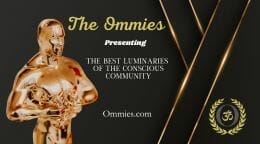How You Know He’s Cheating

Do you think your partner is cheating on you? Is it really happening or are you just paranoid?
Cheating – The Difference Between Women’s Intuition and Paranoia
Just the other day, one of my patients, let’s call her Ellie, came into my office in crisis. She’d just found out that her husband “Jules” had been cheating on her. What made things worse is that they’d been separated for almost a year and were supposedly working toward reconciliation.
In the couple’s therapy that they’d been attending, Jules kept insisting that he wanted his family back together. From the start, Ellie had expressed her doubts about this, saying that she felt strongly that he was keeping things from her. Jules said that she was being hysterical. Ellie has a habit of expecting the worst of others. She hears criticism and rejection when it’s not really there. Just like in the fable “The Boy Who Cried Wolf,” it was easy for the couple’s therapist and for me to think that more than likely, Ellie was imagining things.
Finally, Jules confessed to Ellie that yes, he’d been cheating on her and seeing another woman since the time of the separation and that in fact, he’d recently moved in with her. It turns out that Ellie was right about her husband. After months of having been labeled as “crazy” and “paranoid”, she was finally, albeit sadly, vindicated. Ever since Ellie shared this story with me, I’ve been contemplating the difference between intuition and paranoia; between someone’s “gut sense” and their delusions of abandonment or betrayal. My question is whether the inner voice driving Ellie to the correct conclusion was one of paranoia or wisdom. Was it simply a coincidence that Jules happened to be doing exactly what she’d expected or was Ellie accessing some deep reserves of inner knowing? The conundrum for me as a therapist is to what degree an emotionally wounded person like Ellie can make a realistic appraisal of other people’s intentions. My concern is how I might help such a person to sort out her inner wisdom from her paranoid fantasies. People who had loving, supportive parents grow up to trust their gut feelings, but those who lacked this kind of support during their early years suffer from emotional confusion. As adults, they live in expectation of rejection, disappointment, and betrayal. Ellie’s childhood was an unfortunate combination of bullying and neglect. Understandably, she has a dim view of human nature. When she married Jules, she thought that he was one of the rare “good guys,” but despite their love for one another, the marriage had its fair share of conflict.
Ellie is over-sensitive to slights and over-reactive when angry or upset. Jules can be passive, even passive-aggressive. When he asked for a separation, he claimed that it was because he couldn’t take the drama anymore. His condition for getting back together was that things had to change between them. This was what propelled her into therapy. Ellie had no idea that the real reason Jules wanted to separate was that he’d met someone else. Even so, she couldn’t let go of the suspicion that he was keeping things from her. I asked her on more than one occasion if there was any evidence to support her fears, and her answer was always, “No, I just feel it.” When I discovered that Jules was cheating and as dishonest as Ellie had feared, I began to think about what more I could have done to help her. While I didn’t want to support Ellie’s negative view of humanity in general or of Jules in particular, I might have gone too far the other way in questioning her concerns. Ellie had been married for many years and knew her husband well. Even with her tendency toward envisioning worst-case scenarios, she might have been picking up on some subtle cues from Jules’ behavior that things weren’t as he professed.
So, what can be learned from this story? For someone like Ellie, the lesson is that it’s not always easy to differentiate between intuition and paranoia. It takes practice and self-awareness to distinguish the quiet voice of inner knowing from panicky, catastrophic dread. The lesson for the therapist is to take those seemingly paranoid musings more seriously, even when they reside in the heart of a wounded, suspicious person. As this cautionary tale has demonstrated, someone like Ellie is just as likely to have a brilliant flash of intuition as anyone else.
You will also enjoy 5 Reasons Why Men Are Unfaithful
Click HERE to Connect with your Daily Horoscope!
About the Author
Marcia Sirota MD FRCP(C) is a board-certified psychiatrist, that does not ascribe to any one theoretical school. Rather, she has integrated her education and life experiences into a unique approach to the practice of psychotherapy. She considers herself a realist with a healthy measure of optimism. Sign up here for her free monthly wellness newsletter. Listen here to her latest podcast. mariasirotamd.com
Dr. Marcia Sirota is a Toronto-based board certified psychiatrist specializing in the treatment of trauma and addiction, as well as founder of the Ruthless Compassion Institute, whose mandate is to promote the philosophy of Ruthless Compassion and in so doing, improve the lives of people, everywhere.








